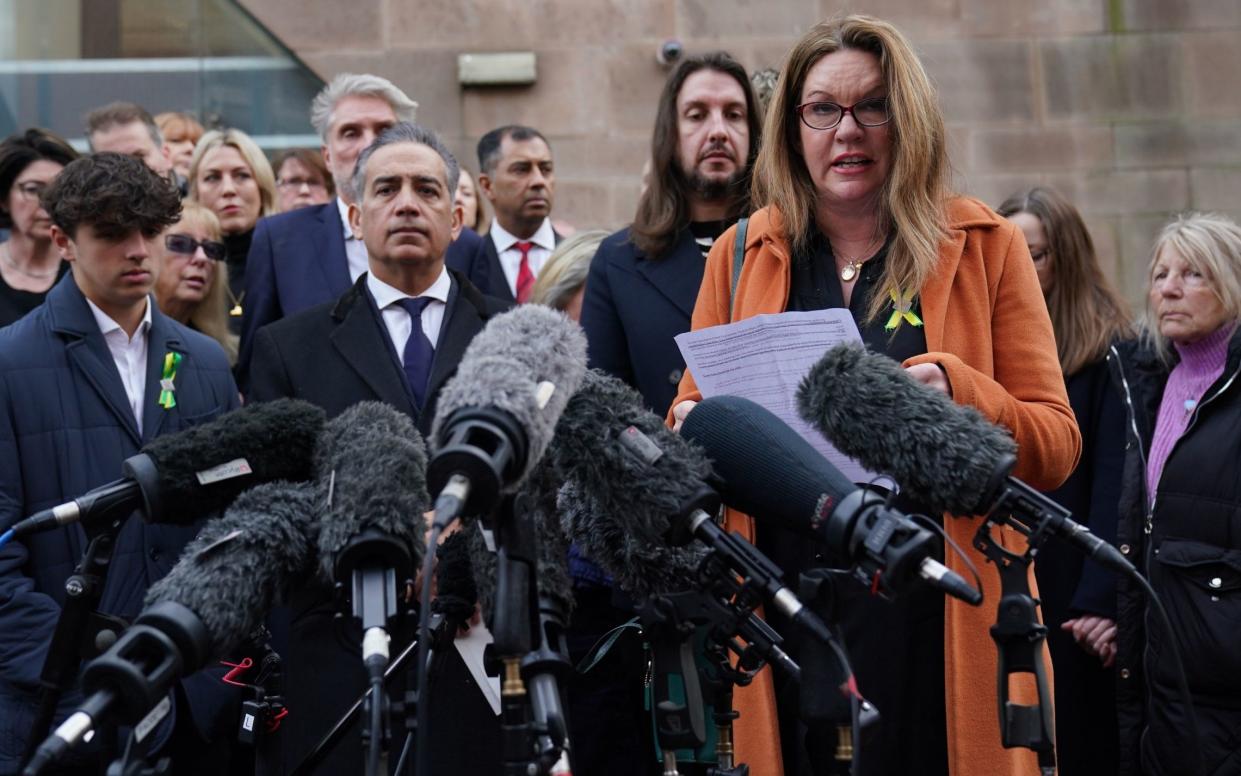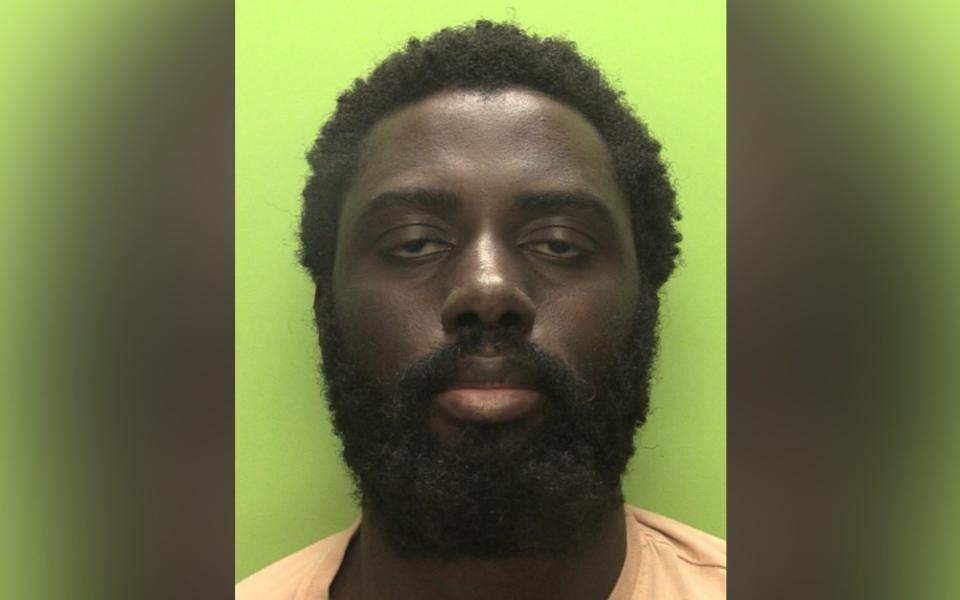‘Something has gone wrong’ with how CPS treated Nottingham victims’ families, says top KC

Nottingham killer Valdo Calocane’s sentence was not properly explained to the families of his victims because of court backlogs, a top KC has said.
It comes as the Attorney General is to review Calocane’s sentence following complaints it was unduly lenient, as revealed by The Telegraph.
Calocane, a paranoid schizophrenic, pleaded guilty to manslaughter on the basis of diminished responsibility on Thursday and was handed an indefinite order to be detained in a high-security hospital.
Tana Adkin KC, chairman of the Criminal Bar Association, said that court backlogs and a lack of barristers meant the reasons for different outcomes were not explained to victims’ families.
She told BBC Radio 4: “Something seems to have gone wrong here. Of course victims and their families should have had all of these matters explained to them.
“For instance the differences in the law, the differences in sentencing powers of the court, and that this gentleman was found to have a mental illness which had a significant impact on the powers of the courts.”
Ms Adkin added: “The problem is certainly with our backlog and our lack of barristers. We are, I’m afraid, up against it as far as time is concerned.
“And perhaps somewhere along the line people have forgotten that they need to spend proper time explaining the sentencing process of the courts to people that are grieving.”
Calocane, 32, killed two 19-year-old university students Barnaby Webber and Grace O’Malley-Kumar, and 65-year-old school caretaker Ian Coates, in Nottingham on June 13 last year.
He was originally charged with murder but this was downgraded to manslaughter on the grounds of diminished responsibility owing to his schizophrenia.

Victoria Prentis, the Attorney General, will now consider whether to refer the case to the Court of Appeal for judges to decide whether the sentence is appropriate.
Barnaby’s mother, Emma, standing outside Nottingham Crown Court, criticised the Crown Prosecution Service, saying she had felt “rushed, hastened and railroaded”.
A CPS spokesman said: “Our thoughts and sympathies are with the families of the victims at this incredibly difficult time. Engagement with those who have been left bereaved is one of our highest priorities and in all cases, we continue to liaise with victims’ families throughout the legal process.”
Mr Coates’ son James said: “This man has made a mockery of the system, and he has got away with murder.”
Explaining the differences between murder and manslaughter, Ms Adkin said: “Murder is the act of killing but with the mental element of intending to kill or intending to cause grievous bodily harm.
“Manslaughter is the killing itself. It’s the act but without the mental element. And when someone has a mental illness, the courts will look very carefully at whether in fact, the mental element for murder can be proved.”
She said two specialist psychiatrists examine the defendant in such cases and give evidence on whether the defendant had the intention to kill. The court then has to consider diminished responsibility for those with mental illness, she added.
A spokeswoman for the Attorney General’s office confirmed a complaint had been received which would now be considered by Ms Prentis and her legal team.
More than 100 offenders had their sentences increased in 2022, data shows.

Calocane, a mechanical engineering graduate, attacked Grace and Barnaby after travelling to Nottingham from London and waiting on a residential street for a victim to walk past.
He stabbed Barnaby in the back and as he did so Grace rushed to her friend’s aid before the knifeman set upon her.
After calmly walking away towards the city centre he attempted to enter a hostel to find more victims, before dragging school caretaker Mr Coates out of his van and stabbing him to death.
He stole Mr Coates’ van before mowing down three pedestrians, who survived.
It later emerged that Calocane was wanted by police at the time of the killings for an alleged assault and had been on the run for nine months.
He had a lengthy history of mental health problems and was diagnosed with paranoid schizophrenia in July 2020, shortly after the first coronavirus lockdown.
Calocane has not offered an explanation for the killings, but psychiatrists said he claimed voices told him to find innocent victims or “something atrocious” would happen to his family.

